Time: Unspecified
Place: Partly in the city of Tmutarakan and partly on the island of Buyan
Prologue
On a wintry evening three sisters are sitting at spinning wheels. As Tsar Saltan overhears from outside the door, the oldest sister boasts that, if she were Tsaritsa (the bride of the Tsar), she would prepare a sumptuous feast; the middle sister would weave a grand linen; the youngest promises to bear, as son for the Tsar, a bogatyr (warrior-knight). Saltan enters, chooses the third sister to be his bride ("Zdravstvuy, krasnaya devitsa!" = "Greetings, beautiful girl!"), and takes her away. The old woman Babarikha devises a revenge for the two jealous older sisters ("Nu, tak slushat, ne meshat" = "Then listen well and don’t interrupt"): when the Tsar is away at war, a message will be sent to him that the child born to his Tsaritsa is not human, but a monster.
Act 1
Introduction — Saltan’s Departure
Scene
The Tsar has gone off to war. In his palace in Tmutarakan, the Tsaritsa has given birth to a son, to whom a chorus of nannies sings a lullaby ("Bayushki, bayushki!"). She is despondent: there is no reply from her husband to the news of the birth of their child. Her sisters are (with Babarikha) now part of the court: the older sister as Cook, and the middle sister as Weaver. (They have secretly replaced the message of the Tsaritsa to her husband with news of her son's birth with another message: it said that she has borne neither a daughter nor a son, neither a mouse nor a frog, but a kind of monster.) They try to entertain her, as does the skomorokh (jester) and the old man ("Gosudarynya, tsaritsa, matushka" = "Your highness, queen, mother"). But all this is to no avail. The young Tsarevich baby, who has been lulled to sleep during this scene, awakens and runs about, accompanied by his nurses, and the people wish God's blessings upon him. Then a messenger stumbles in, having been waylaid with drink by Babarikha. He sings "Gosudarynya moya, ne veli kaznit menya" ("Your highness, don’t punish me"), and his message from the Tsar is read by the scribes: the Tsaritsa and her progeny must be placed in a barrel and thrown into the sea. Reluctantly the people carry out the Tsar's command.
Act 2
Introduction — Militrisa and Gvidon Afloat In the Barrel
Scene
The Tsaritsa and her son Gvidon have landed on the island of Buyan, and broken out of the barrel in which they were trapped. Gvidon, who has grown remarkably rapidly into a young man, is searching for sustenance. While doing this, he rescues a swan from being killed by a kite. in gratitude, the Swan-Bird sings to him ("Ty, tsarevich, moy spasitel" = "You, Prince, my Saviour"). The Tsaritsa explains Gvidon's early history to her son, and the Swan-Bird causes the city of Ledenets (Russian: Леденец, "lollipop") to arise magically on the island. Gvidon is hailed by its inhabitants as its Prince.
Act 3
Scene 1
By the shore of Buyan, the merchant ships have left, and Gvidon laments having being separated from his father ("Veter po moryu gulyayet" = "The wind blows over the sea"). The Swan-Bird will help him by changing him into a bumblebee. He will be able to fly over the sea, as a stowaway on Saltan's ship, to visit him (incognito) in Tmutarakan.
Interlude — Flight of the Bumblebee
Scene 2
The sailors arrive at Tmutarakan from their visit to Buyan. The sailors tell Tsar Saltan of the wonders of Gvidon's island (the magically appearing city itself, a magic squirrel, and the thirty-three bogatyrs from the sea). The two older sisters are concerned that the Tsar will become interested in visiting the island, and they try to dissuade him. In retaliation the bumble-bee Gvidon stings each of them in the brow. Babarikha then tries to trump the sailors, by speaking of a fabulous Princess on the sea, at which point Gvidon stings her in the eye and blinds her. Saltan decides to visit the island, but, in view of the havoc caused by the bumblebee, forbids that breed of insect from ever entering the palace again.
Act 4
Scene 1
Gvidon, again by the seashore of Buyan, longs for a bride ("V sinem more zvyozdy bleshchut" = "Over the blue sea stars shine"). The Swan-Bird appears, and Gvidon tells her of the Princess that he heard about at Tmutarakan. The Swan-Bird transforms herself into that very Princess. His mother and a chorus of maidens enter, and bless the prospect of their wedding.
Orchestral interlude — Three Wonders
Scene 2
Gvidon, with his mother hidden, awaits the arrival of Saltan. When the ship arrives with the Tsar and his retinue, Gvidon greets him, and questions him as to whether or not he will have a son to carry on his work. The Saltan does not yet know that Gvidon is his son ("Akh, moguchiy knyaz Gvidon" = "Ah, mighty Prince Gvidon"), and expresses regret for his rash treatment of his wife many years earlier. Although Gvidon tries to cheer him up with the three wonders, it becomes clear that only the presence of Militrisa can assuage Saltan's guilt. The Princess-Swan (Lyebyed) appears and reveals the Tsar's long-lost wife. The older sisters beg forgiveness, which in his happiness Saltan grants. Everyone then joins in a celebration of the upcoming wedding of Gvidon and the Princess-Swan.


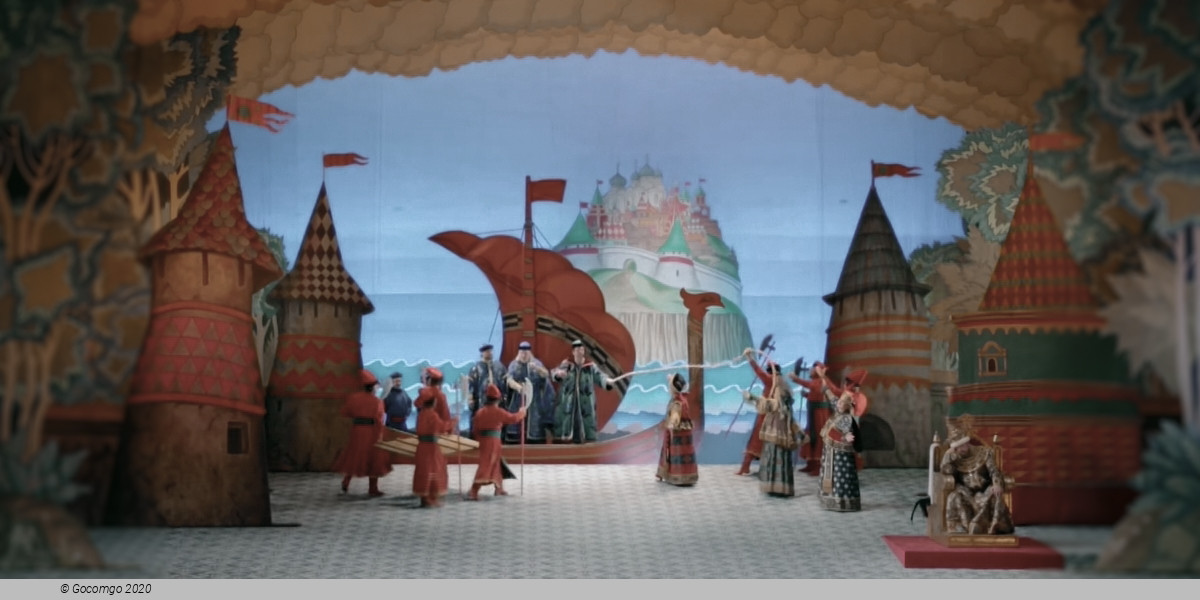
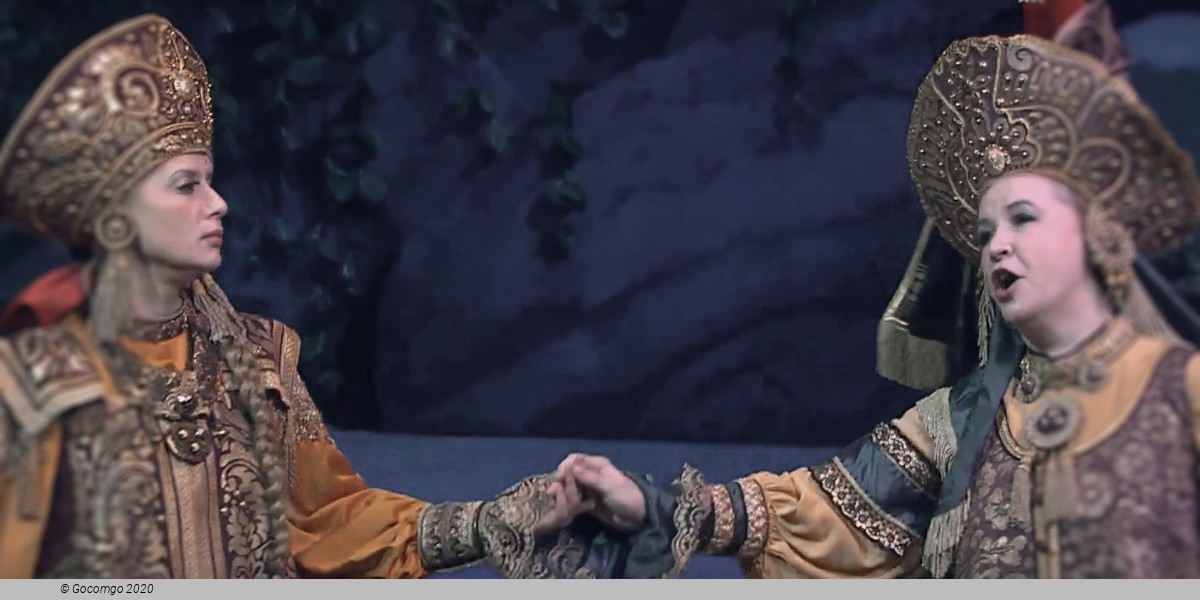
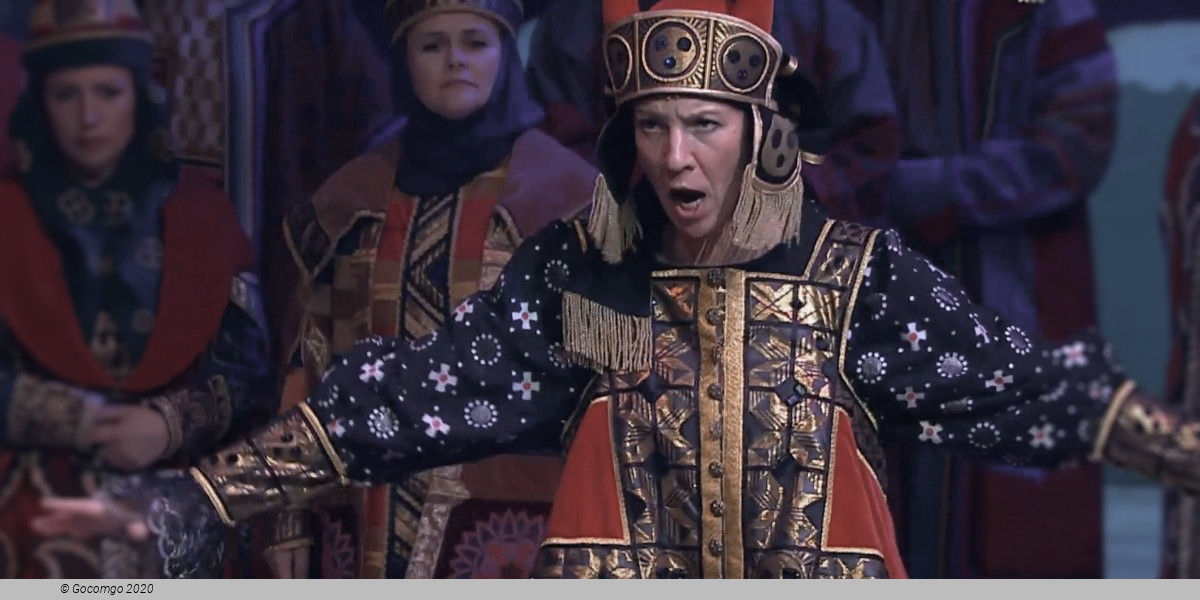
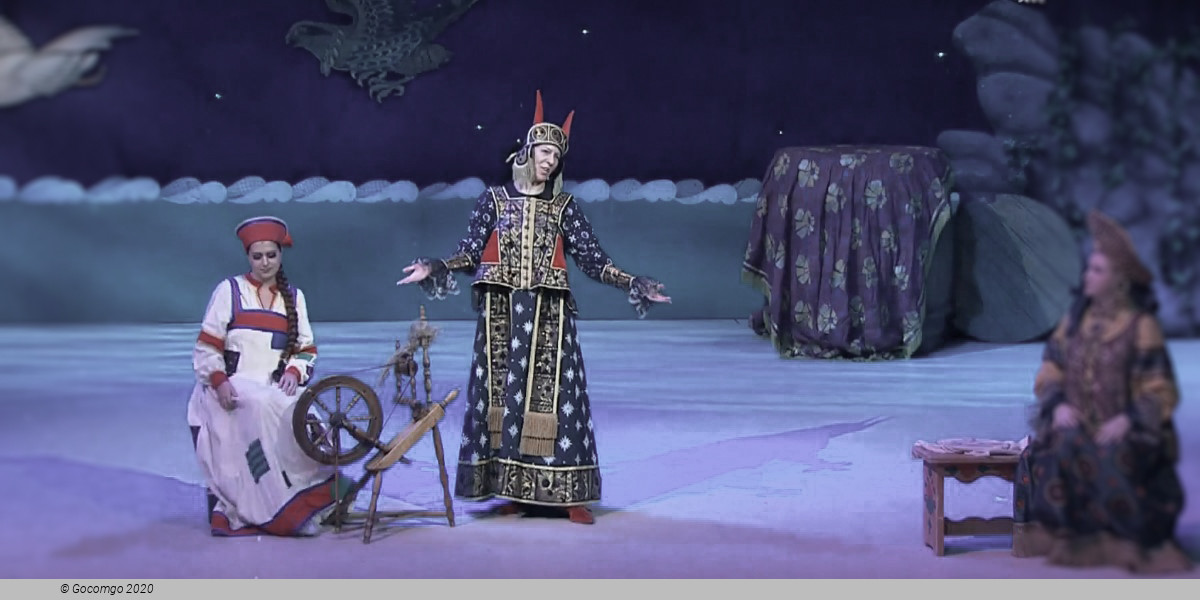
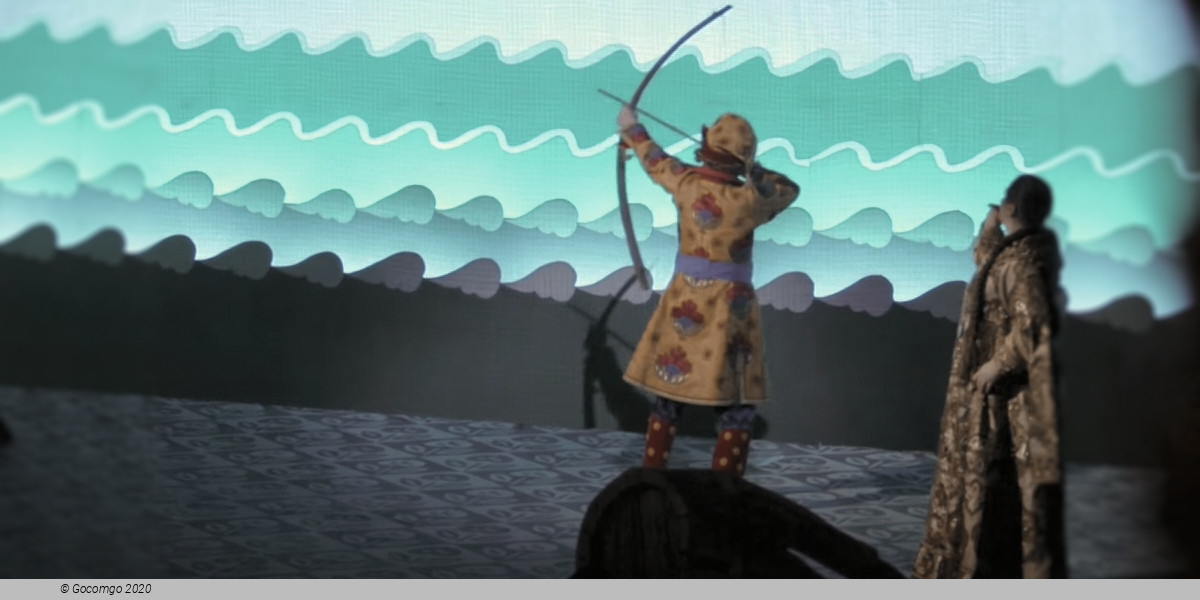
 B. Dmitrovka, 17
B. Dmitrovka, 17